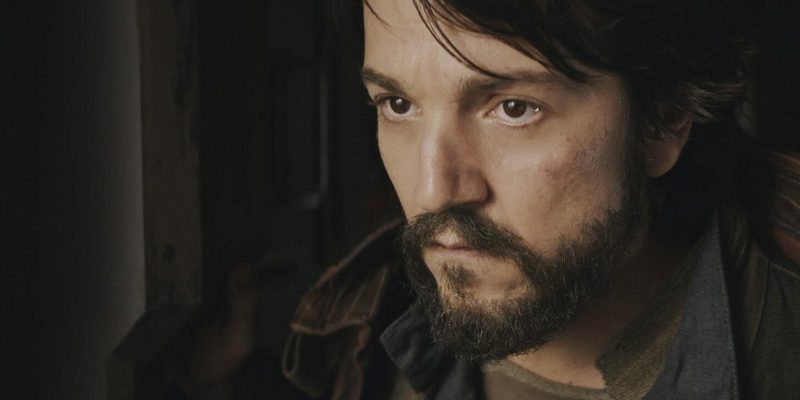This discussion of the sensibilities and career of Tony Gilroy contains minor spoilers for the first three episodes of Andor.
There is a small and revealing moment early in Michael Clayton, writer Tony Gilroy’s directorial debut. The eponymous lawyer (George Clooney) is taking a drive with his son, Henry (Austin Williams). Henry is talking about the fantasy book and video game franchise with which he is obsessed, Realm+Conquest. According to Henry, the series depicts a world in which “it’s just completely, like, everybody for themselves.” Michael quietly sighs, “Sounds familiar.”
Henry asks his father to read the books, as something they might share, but Michael shrugs him off. “By the time I finish it, you’ll be on to something else,” Michael explains. He grudgingly asks Henry for a copy, only for Henry to reveal that there’s already a copy of the book in Michael’s kitchen. It has a red cover. The only adult to pay any attention to Henry’s interest in the fantasy series is Michael’s old friend Arthur Edens (Tom Wilkinson), who is in the midst of a nervous breakdown.
Michael lives in the real world. He is a “fixer” for a prestigious law firm that is undergoing a gigantic merger that may render his role obsolete. He is massively in debt after the restaurant that was supposed to be his “way out” became a financial black hole that left him cleaning up the mess left by his drug addict brother Timmy (David Lansbury). While all this is going on, Michael gets drawn into a corporate conspiracy surrounding his firm’s relationship with corporate conglomerate U/North.
Michael Clayton was a massive success. It grossed $93 million on a budget of $21 million. It was nominated for seven Academy Awards, including Best Picture. Tony Gilroy received two of those nominations, for writing and directing. Tilda Swinton won her award for her performance as U/North general counsel Karen Crowder. The movie has been described (only slightly hyperbolically) as “Hollywood’s last movie for adults.” It is a deliberate throwback to the conspiracy thrillers of the 1970s.
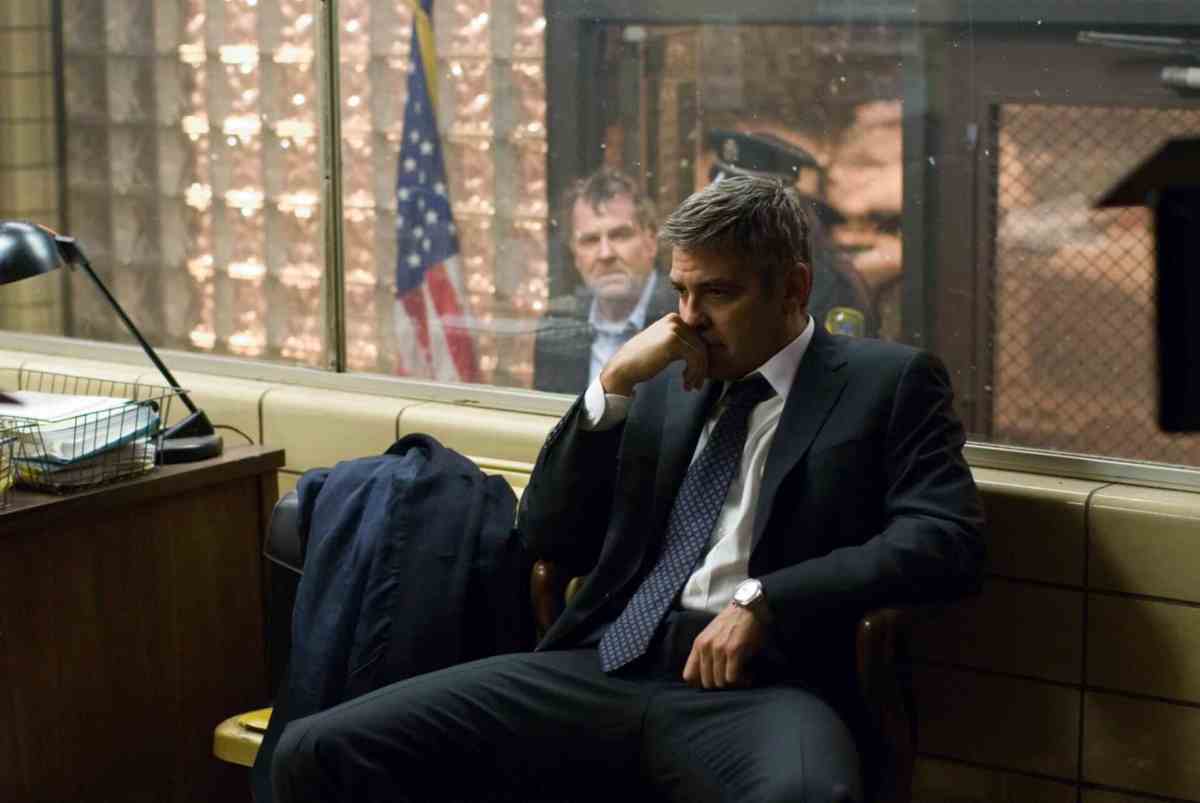
Michael Clayton is emblematic of a kind of movie that doesn’t exist anymore. “The movie business has fundamentally changed, as anybody who’s got their eyes open knows, and it’s never changing back,” Gilroy conceded four years later, promoting The Bourne Legacy. “I don’t think that’s any big secret to anyone that it’s all gone and it’s gone to some place really great — it’s gone to cable television.” It has arguably now migrated further, to streaming.
Many modern eight-episode-plus streaming shows would have been two-hour movies just a few years ago. Craig Gillespie’s thematic follow-ups to his theatrical release I, Tonya were two streaming series for Hulu: Pam & Tommy and Mike. Other Hulu series like Dopesick and The Dropout would have been made as movies with late autumn awards-qualifying theatrical releases a little over a decade ago, but that is unimaginable today.
Even allowing for that, it is strange to be able to draw a straight line from Michael Clayton to Andor. Considering his interests and filmography, Tony Gilroy might seem like a strange fit for the Star Wars universe, particularly given that the modern franchise seems actively hostile to awards-nominees like Hossein Amini and the idea of a distinct artistic vision. Gilroy himself would concede as much, acknowledging that he doesn’t seem entirely sure how he ended up involved in Star Wars.
Gilroy was initially drafted in to work on Rogue One after the studio got cold feet over director Gareth Edwards’ cut of the movie. Unlike J.J. Abrams or Rian Johnson, Gilroy was not a lifelong fan of the franchise. “I had no reverence for it whatsoever,” he admitted in hindsight. “I was unafraid about that. And they were in such a swamp… they were in so much terrible, terrible trouble that all you could do was improve their position.” It was a calculated choice.
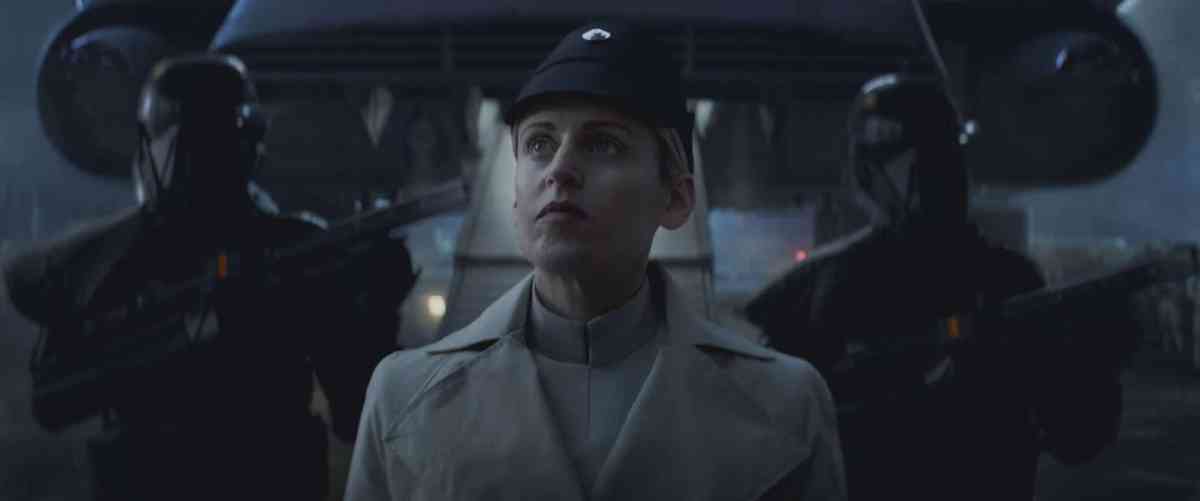
One can detect Gilroy’s influence on the finished product. Rogue One depicts the Empire as a collection of squabbling middle-managers like Grand Moff Tarkin (Peter Cushing, Guy Henry) and Director Orson Krennic (Ben Mendelsohn) competing for advancement. It makes sense that Mendelsohn is one of the actors to talk most candidly about how the film changed, with “vastly different readings” of particular scenes, given Krennic’s on-screen characterization feels like a Gilroy revision.
Gilroy first pitched the show that would become Andor as a memo a few years back. Disney passed on the pitch at the time because the pitch did not match its image of the brand. However, when Disney’s preferred approach fell through, the company found the notion of a fully formed pitch from an Oscar-nominated writer-director suddenly appealing. “That memo is the show we’re making,” Gilroy has stated. There is a minimal sense of compromise in that perspective.
By his own admission, Gilroy was “never interested” in Star Wars before working on Rogue One and is still “not a fan fan” of the franchise. This perspective is important. Franchises like Star Wars need to be about more than just Star Wars. Gilroy claims to be crafting Andor as a show for the “Star Wars hesitant, or Star Wars averse, or Star Wars reluctant.” This is necessary, if these franchises are to be anything more than empty nostalgic masturbation.
When George Lucas created Star Wars, it wasn’t just a collection of references to Star Wars. It was a way for Lucas to offer social commentary on the Vietnam War and the ascent of Richard Nixon. The franchise was drawn from Lucas’ long-standing affection for samurai films and war movies. It was a work of genuine intellectual curiosity that reflected the world as it was and the cinematic influences on its creator. It helped define the modern blockbuster, but it was also a work of New Hollywood.
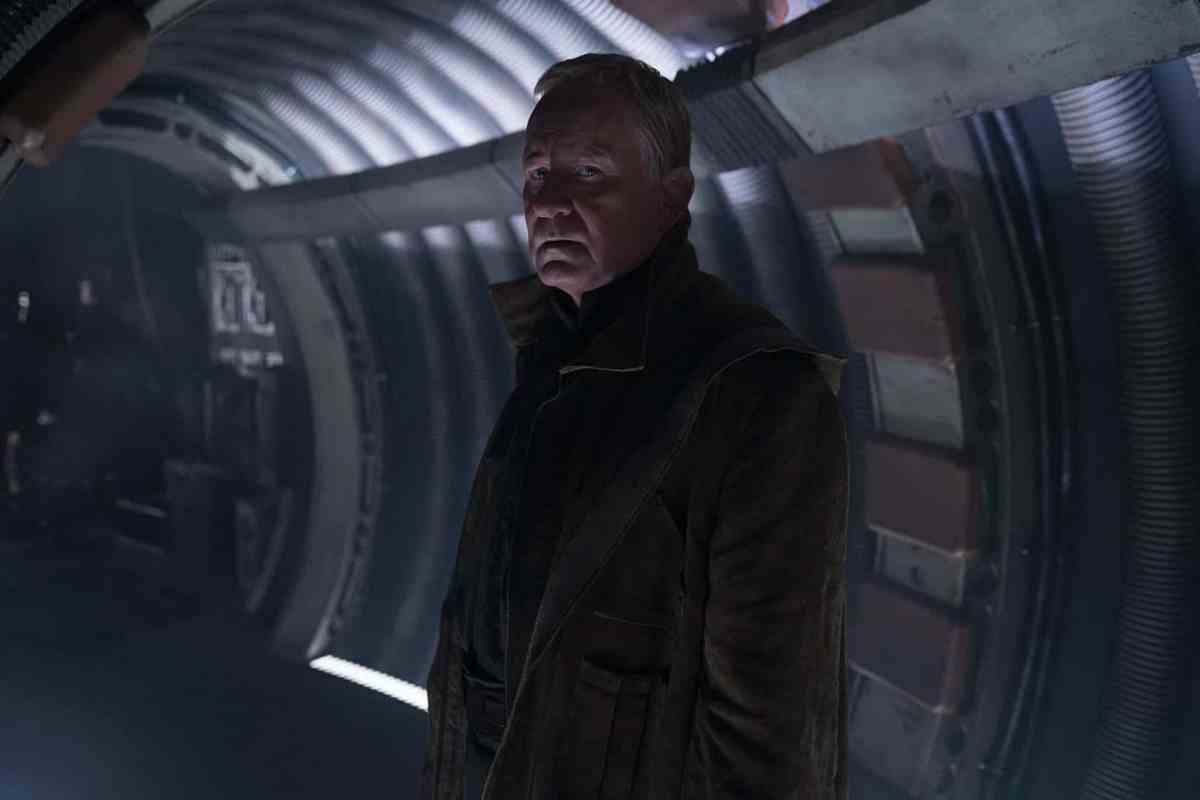
In that sense, Gilroy is perhaps the perfect choice to breathe new life back into Star Wars. Michael Clayton is a movie that is heavily inspired by the films that were coming out around Star Wars. It features 1970s director Sydney Pollack in a prominent supporting role, just a year before he passed away. The film’s cinematography is heavily influenced by Owen Roizman and Gordon Willis, who worked on classics like The Godfather, The Exorcist, All the President’s Men, and Network.
From the outset, Andor demonstrates Gilroy’s unique thematic preoccupations. The central antagonist of the opening three episodes is Syril Karn (Kyle Soller), a mid-level bureaucrat who pushes beyond the boundaries of his role with the enthusiastic assistance of the thuggish Sergeant Linus Mosk (Alex Ferns). This is similar to how the plot of Michael Clayton is driven by Karen Crowder similarly overstepping her role with the assistance of Mr. Verne (Robert Prescott).
In contrast to a lot of other Star Wars media, Andor shares Gilroy’s fascination with the dangers of an overzealous middle manager with something to prove. It isn’t just Karn. Later episodes will introduce Imperial Supervisor Dedra Meero (Denise Gough) as an antagonistic force, who is similarly driven by ambition. “I’m playing a woman in a man’s world,” Gough explains. “She has to do certain things in order to get to where she wants to go. Some of them absolutely reprehensible.”
Again, this feels like something drawn from Gilroy’s particular interests as a filmmaker. Part of what made Karen Crowder so compelling as an antagonist in Michael Clayton was the sense that she was pushing extra hard against the double standards imposed on a woman in these corporate roles. She is introduced rehearsing her interview answers in front of a mirror, preparing to field vaguely sexist questions about how she maintains “a balance between work and life.”
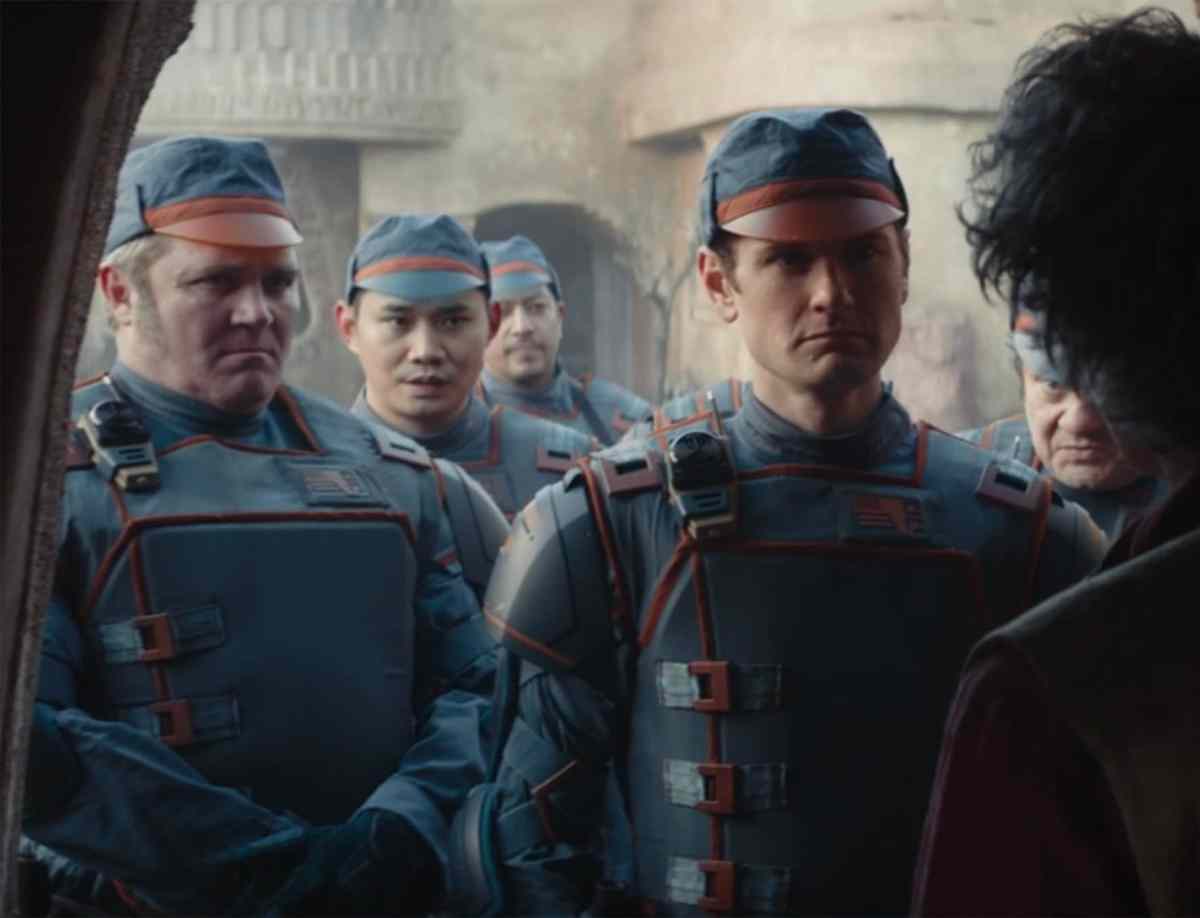
In both Michael Clayton and the Bourne movies, Gilroy is fascinated by the idea that horrifying systems are maintained by unassuming bureaucrats, generic functionaries in bland offices casually ordering terrible things. “Am I this freak organism that has been sent here to sleep and eat and defend this one horrific chain of carcinogenic molecules?” asks Arthur in the midst of his breakdown. “Is that my destiny? Is that my fate?” It’s an interesting view of evil to build into a Star Wars show.
Gilroy is also a filmmaker interested in the horrors of late capitalism, an interest shared by his brother Dan on films like Nightcrawler. In contrast to the Nixon-era conspiracy thrillers from which it is drawing, the real horror of Michael Clayton is the way that money and greed ensnare their victims. Michael is obsessed with “equity” and trapped into service by the loss of his “walkaway money” in the failed restaurant. This is a world where an individual’s “pain threshold” comes with a dollar sign.
Allowing for the odd focus of taxation policy in The Phantom Menace and the arms dealers in The Last Jedi, Andor marks a relatively rare engagement with late-stage capitalism for live-action Star Wars. The villains of the three-episode premiere are a “corporate tactical force” from Preox-Morlana. They are not stormtroopers. They are essentially a private security force — albeit one that has stepped into the role of local law enforcement.
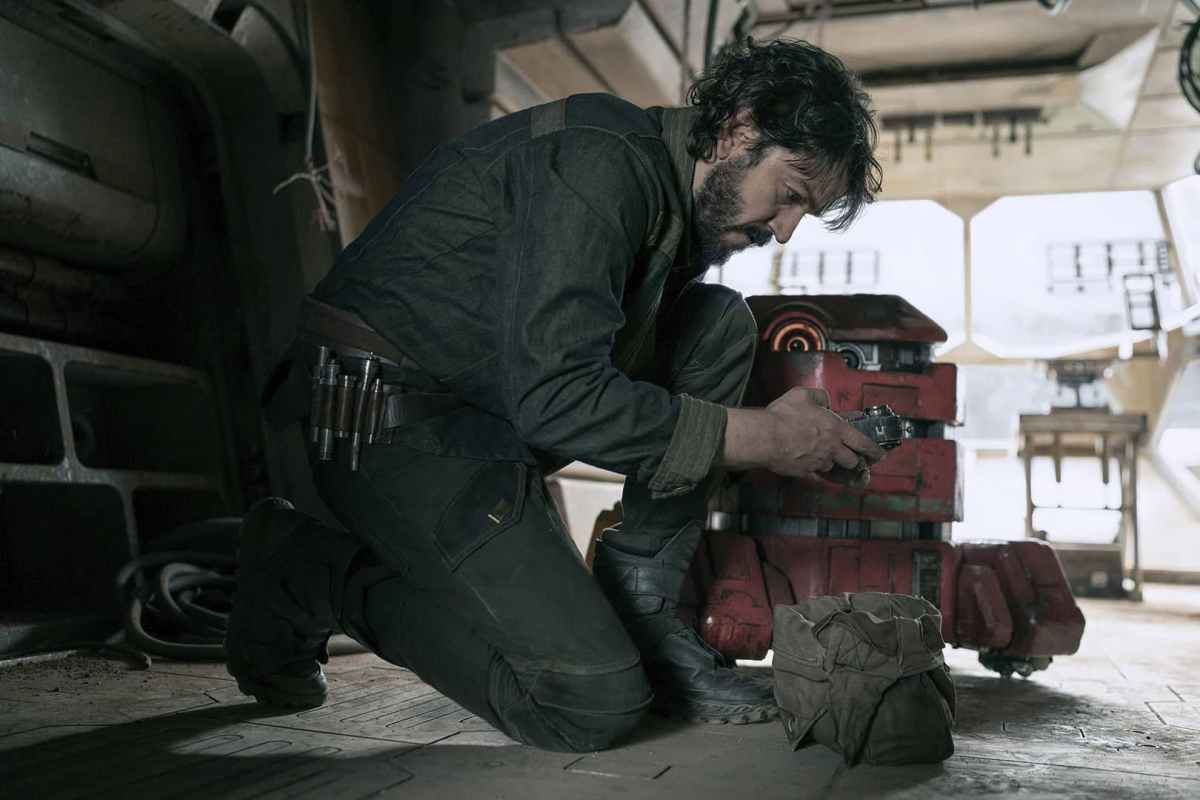
This blurring of the boundaries between state power and private interests is a recurring preoccupation for Gilroy. The Bourne franchise is populated with “omnipotent yet incompetent public servants with suspicious links to the private sector.” Gilroy’s sophomore film, Duplicity, follows two former spies working in corporate espionage, inspired by the writer’s observation that the intelligence officials that he had worked with on the Bourne films “were all going private.”
It is also very timely. The recent Trump presidency similarly blurred the boundaries between the state and corporate interests. Trump had 3,400 conflicts of interest. His children exploited his position to become tens of millions of dollars richer. Ralph Nader described Trump’s presidency as a sort of “corporate state fascism.” Andor understands that it is impossible to talk about the threat of fascism in 2022 without talking about how that is intertwined with late capitalism.
This is perhaps the appeal of Andor to Gilroy. Big ideas, hidden inside a fantasy setting. At the end of Michael Clayton, Michael discovers a dossier from Arthur that will help expose the mundane horrors and corruption of U/North. The book has a red cover. Arthur has named it in honor of Henry’s favorite fantasy series: Summons to Conquest. It’s a biting piece of social critique, literally wrapped in the trappings of a fantasy epic.
